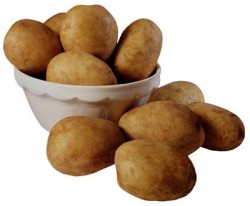Most diet plans recommend limiting carbohydrates. To understand why diets suggest not eating carbs, you must first understand what a carbohydrate is.
Dictionary wise: A carbohydrate is any of a large group of organic compounds occurring in foods and living tissues and including sugars, starch, and cellulose.
Diet world wise: Carbohydrates tend to be the good stuff that we all love to eat but can lead to weight gain.
Good versus Bad Carbohydrates
Carbohydrates can be either simple (bad) or complex (good) based on their chemical makeup and what your body does with them. Most carbohydrates occur naturally in plant-based foods. Unfortunately, manufacturers add carbohydrates to processed foods in the form of starch or sugar.
Simple carbohydrates are basic sugars with little value for your body. The higher in sugar and lower in fiber, the worse the carbohydrate. Simple carbohydrates that should be limited in a diet include: white rice, fruits, breads, sweets, pastas and starchy vegetables
Complex carbohydrates, like whole grains and legumes, contain longer chains of sugar molecules that take more time for the body to break down and use, giving the dieter a more even amount of energy. Eating carbs that are high fiber, whole grain and nutrient dense can improve the health profile of some low-carb diet programs.
A low-carb diet focuses on proteins, including meat, poultry, fish and eggs, and some non-starchy vegetables. Some low-carb diet plans allow certain fruits, vegetables and whole grains
Risks
Some diets restrict carbohydrate intake so much that they can result in nutritional deficiencies or insufficient fiber.
Drastically cutting carbs can result in headaches, dizziness, weakness, fatigue and constipation.
Carbs are everywhere
Carbohydrates are found in a wide array of foods (some healthy, some not so much). Foods high in carbohydrates are an important part of a healthy diet.
Carbohydrates provide the body with glucose, which is converted to energy used to support bodily functions and physical activity. But carbohydrate quality is important; some types of carbohydrate-rich foods are better than others:
- The healthiest sources of carbohydrates—unprocessed or minimally processed whole grains, vegetables, fruits and beans—provide vitamins, minerals, fiber, and other nutrients.
- Unhealthier carbohydrates include white bread, pastries, sodas, and other highly processed or refined foods. These can contribute to weight gain (or loss), diabetes and heart disease.

Adding healthy carbohydrates to your diet:
- For breakfast, select whole grains, such as hot cereal, like steel cut or old fashioned oats (not instant oatmeal), or a cold cereal that lists a whole grain first on the ingredient list and is low in sugar.
- For lunch: Opt for grain breads. The first ingredient should be whole wheat, whole rye, or some other whole grain.
- Try a whole grain in a salad, such as brown rice or quinoa.
- Choose whole fruit instead of juice. An orange has two times as much fiber and half as much sugar as a 12-ounce glass of orange juice.
- Rather than fill up on potatoes – which promote weight gain – choose beans for an excellent source of slowly digested carbohydrates. Beans and other legumes such as chickpeas also provide a healthy dose of protein.
So, you can now see that all carbs aren’t created equal. Make a plan to add the healthy ones to your diet this week.



